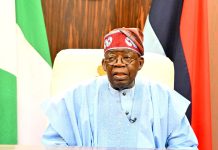The management of General Hydrocarbons Limited (GHL) has denied any claims of suspected debt to First Bank of Nigeria (FBN) Plc, stating that it owes the bank nothing, much less $225 million.
GHL clarified the situation by stating that there was an ongoing moratorium pending the commercial oil production, citing many agreements between it and FBN.
Furthermore, it claimed that a Federal High Court ruling had ruled in its favor and that FBN’s assertion of indebtedness, particularly in the media sector, was “misleading and malicious.”
GHL’s Director of Strategy and Operations, Abdelmuizz Bello, cited media reports from January 10/11, including social media, that stated that a “Federal High Court in Lagos was reported to have frozen the accounts of GHL in all financial institutions in Nigeria and restrained the banks from releasing funds to the company owned by Mr. Nduka Obaigbena, the Chairman of ARISE Media Group” over alleged outstanding indebtedness amounting to $225,802,379.79m to First Bank.
Read Also: President Tinubu’s Visit to Enugu: Key Engagement
To further correct the record, Bello noted that on May 29, 2021, the oil company and First Bank signed a formal and enforceable Subrogation Agreement.
The deal stated that FBN would finance GHL’s exploration, production, and development of OML 120 in return for a 50:50 profit-sharing arrangement from the OML’s oil profits over an 8-year period, after statutory payments and taxes.
Bello clarified that the FBN 50% stake would subsequently be utilized to settle its solvency problems by paying down its about $718 million in non-performing debts, which were discounted to $600 million.
“With assistance from GHL, the FBN debt was sold for $600 million as an Eligible Banking Asset (EBA) in an effort to remain solvent. After obtaining the funds from Assets Management Company of Nigeria (AMCON), the FBN reconstructed the bank without taking into account GHL’s requirements.
“FBN’s careless and unsecured lending to Atlantic Energy under different Strategic Alliance agreements—of which GHL had nothing to do with or relate to—was the cause of the FBN non-performing loan.”Beyond the fact that FBN will use 50% of the revenues from OML 120 owed to it under the Subrogation Agreement to close the hole the Non-Performing Loan (NPL) generated in its books, the agreements made it apparent that the Non-Performing Loan had nothing to do with GHL.
In contrast to GHL’s OML 120, Atlantic Energy operated OMLs 26, 30, 34, and 42, he clarified.
In lieu of declaring a loan loss of N302 billion at the then exchange rate, FBN was able to declare a profit of N151 billion ($377.5 million) for the year ending December 31, 2021, thanks to the agreements signed with the oil company, according to the Director of Strategy and Operations at GHL.
According to Bello, GHL entered into the deal with the conviction that the FBN was a trustworthy bank that would fulfill its commitment to fund OML 120 and would do so going forward.
The oil company questioned whether those gains could still be legitimate “given its non-compliance with conditions precedent for its return to profitability,” as it was certain that FBN’s failure and refusal to take the necessary action may have opened a challenge to its audited financial statement. And were investors adequately informed about its existing rights issues?
Bello also remembered that FBN had a market capitalization of N256.6 billion prior to the deal, and that if the bank had reported a loss of N302 billion, its capital would have been negative by N46 billion.The profitability of GHL’s subrogation arrangement was then immediately realized by FBN. GHL signed the deal with the conviction that the FBN, being a trustworthy bank, would fulfill its responsibilities to fund OML 120 and would do so going forward.
However, it has obviously failed to do so. As of November 30, 2024, FBN’s market capitalization, which was N256.6 billion, more than tripled to over N900 billion as a result of the agreements with GHL,” he stated.
The director, meanwhile, claimed that GHL’s grievance with FBN was that it had not fulfilled the financial obligations it had undertaken and believed would be completed, which created serious obstacles for the creation of OML 120.
He claims that even though FBN has already paid out $185 million, the process of doing so, which was supposed to happen five days following the financing request, occasionally took up to seventy days.
According to GHL, this resulted in a situation where service providers, including Schlumberger, Baker Hughes, and Century, who were meant to get payment for separate interventions simultaneously, received payments intermittently at different times.
It clarified that the issue led to significant downtime and day rate losses, resulting in inefficiencies and losses over $147 million, including an arbitration award given to one of the service providers.
Regarding the purported money diversion, Bello disclosed that, in contrast to FBN’s assertions, its credit and risk team had confirmed and authorized all invoices and contracts owed to the contractors hired to develop and run the oil mining lease and had paid these contractors and service providers directly.
Given that FBN paid service providers directly following screening and clearance by its credit and risk teams, the claims of a diversion of the funds supplied to GHL are obviously absurd and unfounded.
When FBN began to participate in the process of reviewing, approving, and paying all invoices, it ultimately turned into a lender, risk manager, and operator all at once. Simultaneously, FBN authorized and subsequently hired a CFO for GHL, who assumed complete accountability for all financial outlays.The fact that the oil block is located more than 75 kilometers offshore from Nigeria and has a Floating Production Storage and Offloading (FPSO) that needs logistics and transportation assistance, with over 250 employees on the FPSO and the related submersible rig, should also be mentioned.
Over the course of the last 40 months, platform supply vessels, security vessels, mooring vessels, and more than 500 helicopter sorties have been delivered, necessitating extensive logistics planning. FBN’s credit and risk teams reviewed, authorized, and personally funded all of these expenses, including food.
“The allegation of diversion contained in some publications is therefore wicked, malicious, false, injurious, and libellous, given the approval process for the funds put in place by FBN and the payment made directly to contractors and service providers,” he stated.
Additionally, GHL argued that the $185 million loan that had been released was not repaid because it was still inside the Facility and Tripartite Agreements’ moratorium period.
Bello claims that the debt is only payable when commercial oil production income are split 50/50. It is obvious that much more funding is required, but FBN has declined to supply it.Through the use of its directors and other proxies in this obviously contrived crisis, FBN is attempting to intimidate and coerce GHL out of the deal and seize control of the oil bloc, rather than fulfilling its function as a lender that was saved from the brink.
Furthermore, Bello noted that First Bank knew the loan was not due for repayment and did not pursue return of the facility until after they had just lost in court.
It is obvious that FBN lacks the liquidity to finance the project as agreed upon after making upfront gains.
“Should FBN continue to be uncooperative, GHL is looking to utilize its options under the agreement to locate new lenders and partners who can be effective and economical in order to save the project for Nigeria.”A provision in the Subrogation Agreement permits GHL to look for alternative funding in the event that FBN is unable to supply it.
“GHL had no choice but to approach the Court to seek injunctive reliefs and protective orders to secure its commercial and economic interests and find resolution via arbitration after FBN failed to perform under the terms of the Subrogation Agreement,” the firm asserted.
“An Order restraining FBN from obstructing or preventing GHL from obtaining or securing loan facilities or funding necessary for the exploration or operation of OML 120,” he added, referring to the injunctions that GHL had obtained against First Bank on December 12, 2024, following arguments by both parties.
“An order prohibiting FBN from contacting or enforcing any security, receivables, instrument, finance documents, or assets of GHL that have been charged as security, or from taking any action whatsoever to do so.” “An order prohibiting FBN from designating an operator, asset manager, or any individual or organization of the same/similar kind with regard to OML 120, until the arbitration proceedings between GHL and FBN are heard and decided.”
The director expressed regret that FBN, using the same attorneys who lost in the Federal High Court, presided over by Justice Allagoa, went to another judge of coordinate jurisdiction during recess without revealing the previous ruling in order to obtain an interim Mareva injunction prohibiting GHL and its shareholders from operating their accounts over a fictitious and unfounded debt of $225.8 million, even though there was an existing court order in place.
He clarified, calling the incident a blatant abuse of the legal system, adding, “FBN had since weaponized the Mareva injunction, which it obtained on December 30, 2024, to confuse the public and befuddle the issues.”
GHL expressed optimism that justice will be served eventually, even though it noted that “this impunity is now back before the Federal High Court, Lagos.”
Join Television Nigerian Whatsapp Now
Join Television Nigerian Facebook Now
Join Television Nigerian Twitter Now
Join Television Nigerian YouTUbe Now





